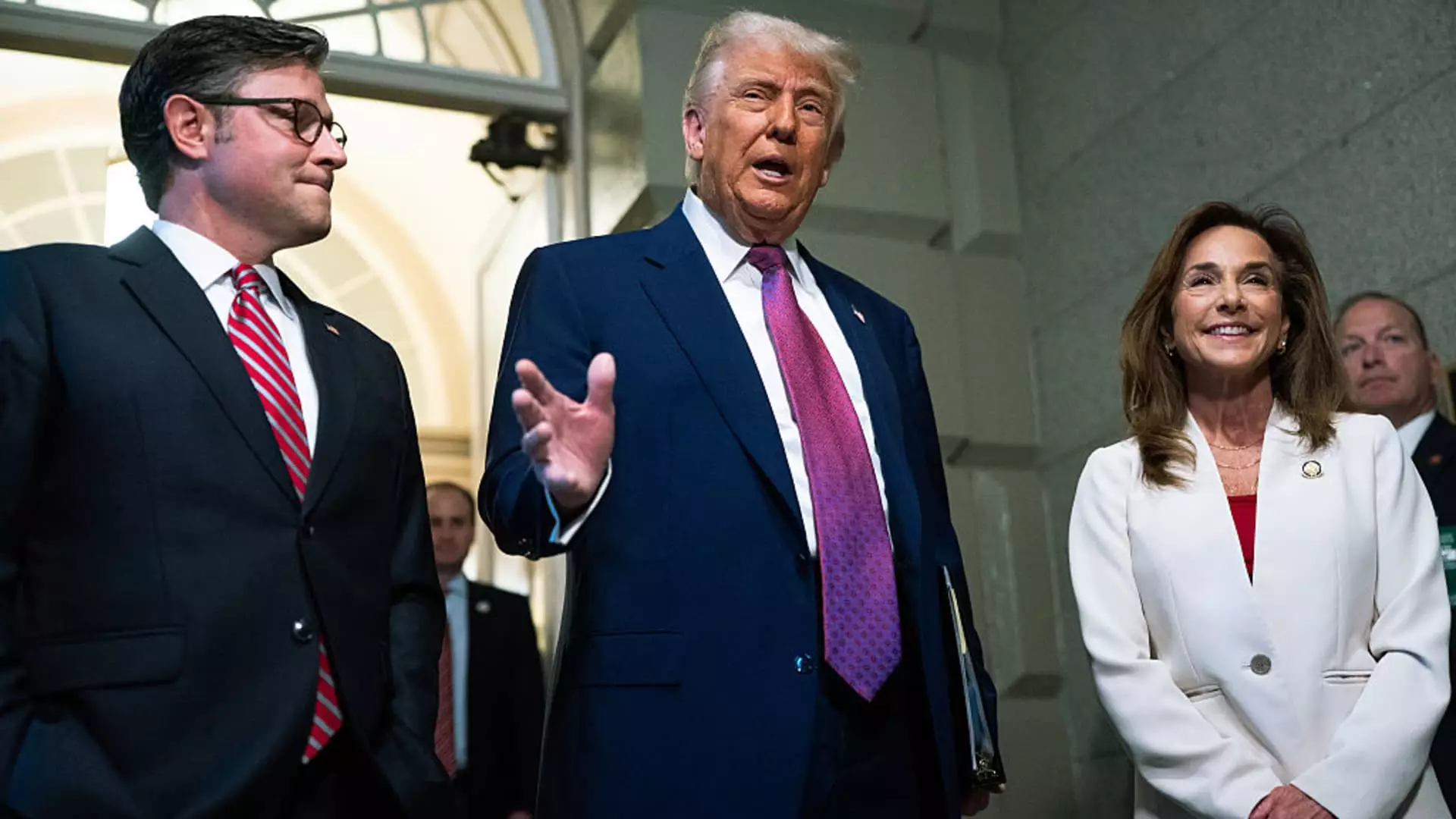It is a moment that some GOP leaders are celebrating as a significant victory: the passage of President Donald Trump’s ambitious tax legislation by a razor-thin margin of 215-214 in the House of Representatives. Yet, beneath the surface of this political achievement lies a troubling reality. While Republicans cheer for their ability to maneuver through the complexities of their party’s factions, they are fumbling the most pressing issues facing everyday Americans. This bill, replete with tax cuts that disproportionately benefit the wealthy, illustrates the disconnect between the political elite and the constituents they purport to serve.
The fact that every Democrat voted against the bill is not merely a partisan divide; it underscores a broader consensus among many that the legislation serves as a tool for enriching the affluent, rather than an effort to promote equitable economic growth. Interestingly, notable Republicans, like Reps. Warren Davidson and Thomas Massie, also voiced their dissent. Their opposition reveals that even within the party, there are growing concerns about the soulless machinery of politics that churns out legislation rewarding those who need assistance the least.
Amendments as Band-Aids
The chaotic 21-hour debate and the numerous amendments to the bill reflect an unsettling trend in American politics — a legislative process steeped in compromise, but ultimately yielding outcomes that compromise the ideals of fairness and equity. While conservative factions celebrated the acceleration of work requirements for Medicaid recipients, this move only deepens the already gaping chasm between social safety net defenders and free-market purists.
On the other end of the spectrum, the quadrupling of the SALT deduction cap, a provision that benefits wealthier taxpayers, exemplifies the unshakable belief among certain representatives that fiscal policies should cater to financial elites. A tax bill that fails to address the burdens on working-class families in favor of such stratagems is neither functional nor compassionate. Rep. Mike Lawler’s assertion that the bill will “kick-start our economy” is steeped in irony, as the realities of economic data paint a different picture of decline among those in the lowest income brackets.
Market Reactions Reveal Deep Concerns
In response to news about the tax bill, financial markets showed unease, and rightly so. The prospect of rising federal deficits fueled apprehension about the country’s fiscal health, leading to plummeting stock values and rising interest rates. If economists are right about the implications of this bill, it may promise immediate benefits for a select group, but it effectively trades future stability for present gains—a risky gamble that many experts warn could backfire. The yield on the 30-year Treasury bond rising to 5.09% is not just a number; it signals fears of crippling national debt and the potential for long-term economic implications that could hinder growth for years to come.
Concerns surrounding the long-term fiscal consequences of such policies resonate across many demographics. The nonpartisan Congressional Budget Office’s analysis indicating resource drains for the nation’s poorest households serves as a loud alarm: this bill is about financial access and opportunity, and it is failing in monumental ways. If tax policies exacerbate inequality while corporations continue to thrive, we face challenges not only in economic terms but also in social cohesion.
Skewed Priorities Reflected in Policy
The overarching narrative emerging from this tax bill saga is a reflection of skewed priorities within the current GOP. Instead of pursuing policies that uplift and empower the most vulnerable, the focus appears to be crafting that “big, beautiful” bill for the wealthy while wearied citizens remain sidelined. It’s an approach fraught with ethical implications.
When legislation like this one emerges from Congress, it not only affects fiscal landscapes but also holds tremendous societal weight. Inequality is not a mere statistic, it represents real people experiencing struggles and hardships, yet legislators seem all too ready to disregard that narrative in favor of their power struggles. In a political climate that promotes division, perhaps it is time to advocate for a shift towards holistic economic strategies that prioritize the long-term welfare of all citizens, rather than just a select few.
In the end, the passage of this tax bill emphasizes a crucial need: it is essential for political leaders—regardless of their party affiliations—to remember that policymaking should not cater exclusively to special interests but rather commit to fostering an environment of fairness and opportunity for every American.


Leave a Reply